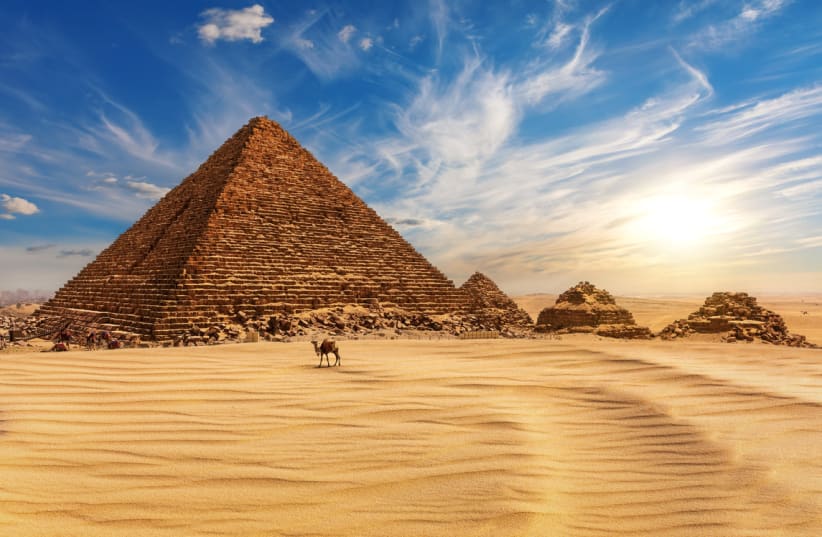Egypt's Economic and Tourism Development: A New Era of Growth
Egypt, a country with a rich historical and cultural heritage, has been undergoing significant economic and tourism development in recent years. With strategic reforms, investment projects, and a focus on sustainable tourism, Egypt is positioning itself as a regional economic powerhouse and a top global tourist destination. This article explores the key aspects of Egypt’s economic progress and its thriving tourism industry.
Economic Development in Egypt
1. Economic Reforms and Policies
In the past decade, Egypt has implemented a series of economic reforms aimed at stabilizing the economy, attracting foreign investment, and enhancing infrastructure. The government launched the Egypt Vision 2030, a strategic plan to achieve sustainable development in all sectors.
Key reforms include:
- Currency Devaluation: In 2016, Egypt floated its currency, allowing the Egyptian pound to be determined by market forces. This move attracted foreign investments and improved economic stability.
- Foreign Direct Investment (FDI): Egypt has become one of the leading destinations for FDI in Africa, with significant investments in energy, construction, and manufacturing.
- Infrastructure Development: Major projects such as the New Administrative Capital and expansion of the Suez Canal have boosted economic growth.
2. Industrial and Technological Growth
Egypt has focused on diversifying its economy by investing in manufacturing, technology, and renewable energy. The country has witnessed growth in sectors such as:
- Renewable Energy: Egypt has invested heavily in solar and wind energy projects, including the Benban Solar Park, one of the world’s largest solar power plants.
- Technology and Innovation: The rise of Egyptian startups in fintech, e-commerce, and artificial intelligence has contributed to job creation and economic dynamism.
- Automotive and Manufacturing: Egypt aims to become a regional hub for automobile manufacturing and assembly, attracting global brands.
3. Trade and the Suez Canal Expansion
Egypt’s strategic location makes it a vital trade hub, with the Suez Canal playing a crucial role in global commerce. The 2015 expansion of the canal allowed for increased traffic and reduced waiting times, boosting revenue from maritime trade. In 2023, the Suez Canal recorded record-high revenues, reinforcing Egypt’s position in global trade.
Tourism: A Pillar of Egypt’s Economy
Tourism has always been a key driver of Egypt’s economy, with millions of visitors attracted to its ancient landmarks, vibrant culture, and natural wonders.
1. Revitalization of the Tourism Sector
After facing setbacks due to political instability and the COVID-19 pandemic, Egypt has successfully revived its tourism industry through:
- Improved Security Measures: Enhanced security at tourist sites has reassured travelers and boosted international tourism.
- Restoration Projects: The government has invested in restoring ancient monuments and unveiling new archaeological discoveries.
- Digital Transformation: The introduction of e-visas and digital tourism platforms has made travel to Egypt easier and more accessible.
2. Iconic Tourist Destinations
Egypt is home to some of the world's most famous landmarks, attracting millions of visitors every year. Key attractions include:
- The Pyramids of Giza: One of the Seven Wonders of the Ancient World, the pyramids remain a top tourist destination.
- Luxor and Aswan: These cities boast some of the most well-preserved temples and tombs from ancient Egypt, including the Valley of the Kings and Karnak Temple.
- The Grand Egyptian Museum: Set to be the largest archaeological museum in the world, this museum will house thousands of artifacts, including treasures from King Tutankhamun.
- The Red Sea Resorts: Egypt’s coastline along the Red Sea, including destinations like Sharm El Sheikh and Hurghada, offers world-class diving, snorkeling, and luxury resorts.
3. Sustainable and Eco-Tourism Initiatives
Recognizing the need for sustainable tourism, Egypt has launched several initiatives to preserve its natural and historical heritage:
- Eco-Friendly Lodges: Several hotels and resorts have adopted green initiatives, including solar power and waste recycling.
- Coral Reef Conservation: Efforts are being made to protect the Red Sea’s coral reefs from pollution and climate change.
- Desert Tourism: Sustainable desert safaris and eco-lodges promote responsible tourism in Egypt’s vast deserts.
The Future of Egypt’s Economy and Tourism
Egypt’s economic and tourism growth is expected to continue with ambitious projects and long-term development plans. Key areas of focus include:
- Smart Cities: The development of the New Administrative Capital and other smart cities will enhance urban living and economic opportunities.
- Cultural and Heritage Tourism: Egypt aims to leverage its rich history by promoting cultural tourism and hosting global events.
- Investment in Transport and Infrastructure: The expansion of airports, highways, and public transport systems will facilitate tourism and business activities.
Conclusion
Egypt’s journey toward economic prosperity and tourism growth is a testament to its resilience and strategic vision. With a balanced approach to modernization and heritage preservation, Egypt continues to attract global attention as a dynamic and flourishing nation. As the country embraces innovation and sustainability, the future looks bright for both its economy and tourism industry.

Post a Comment